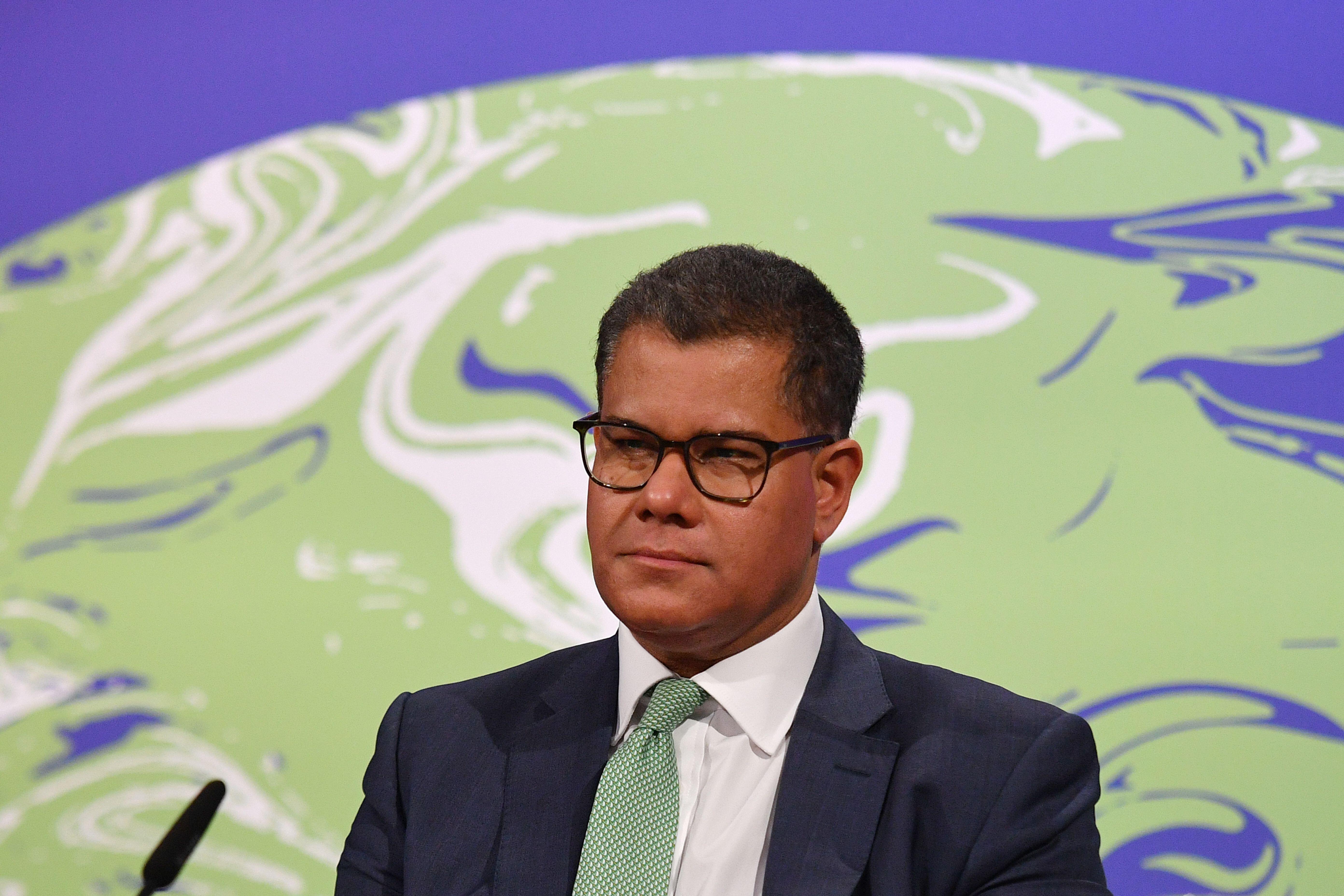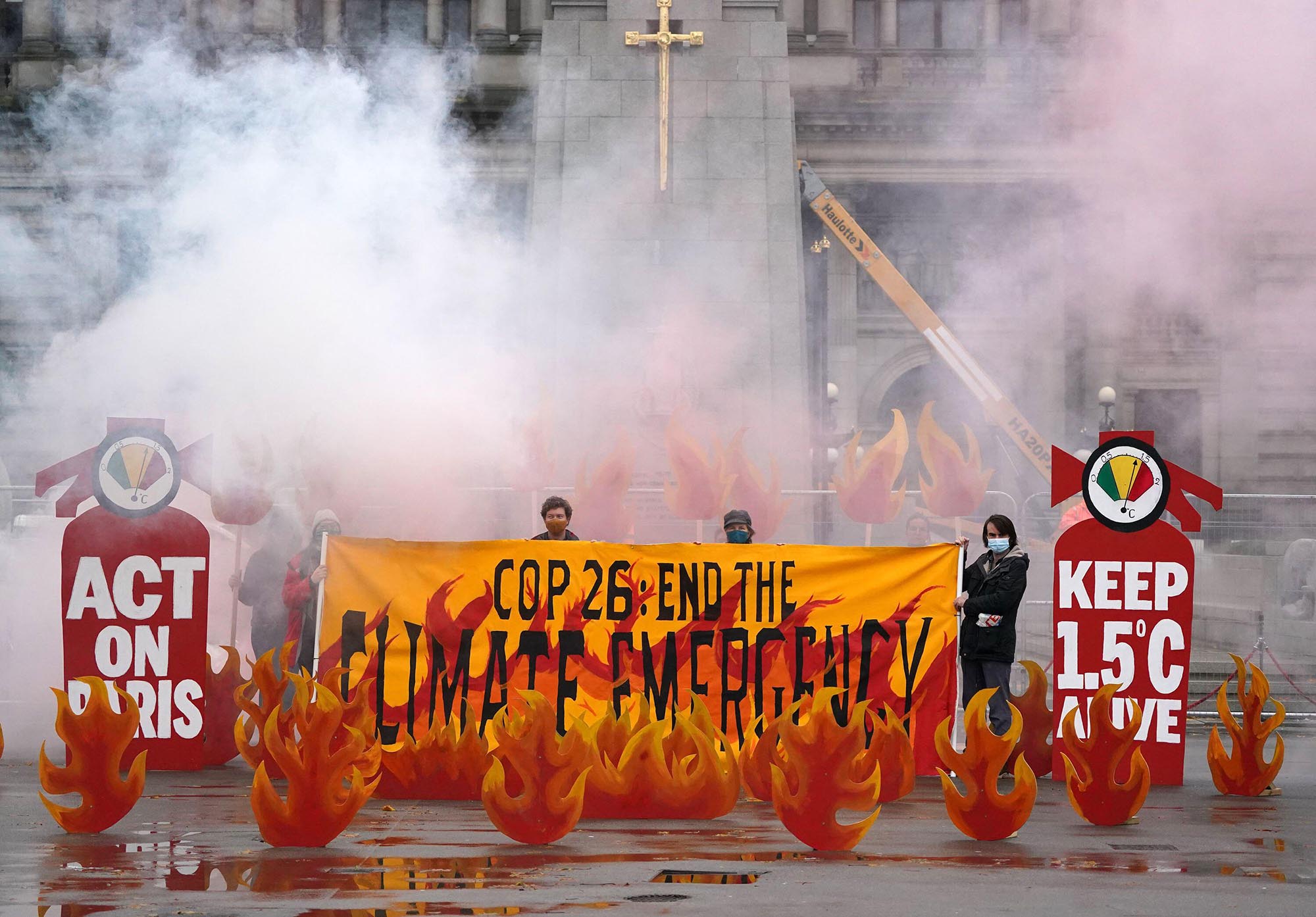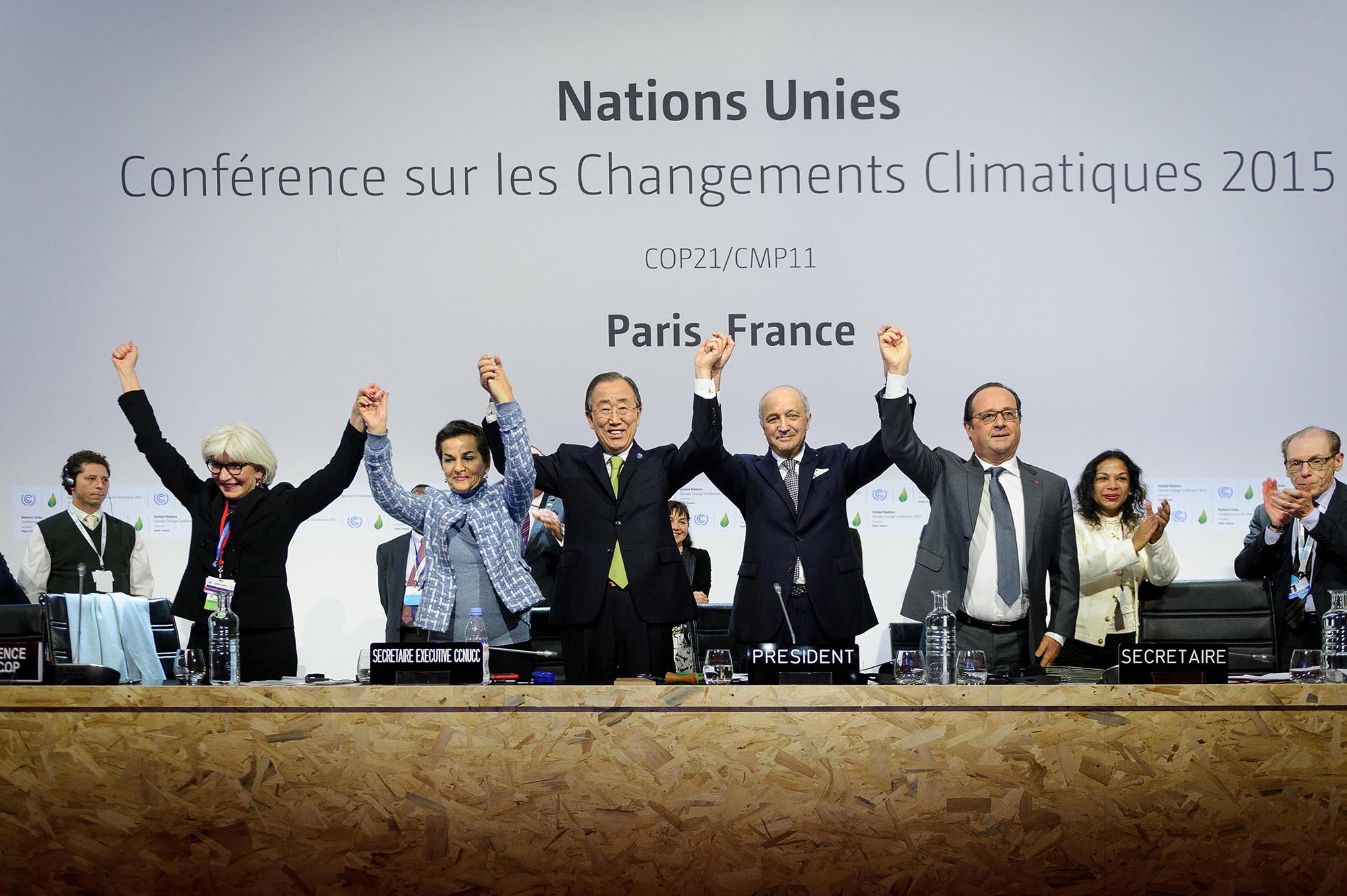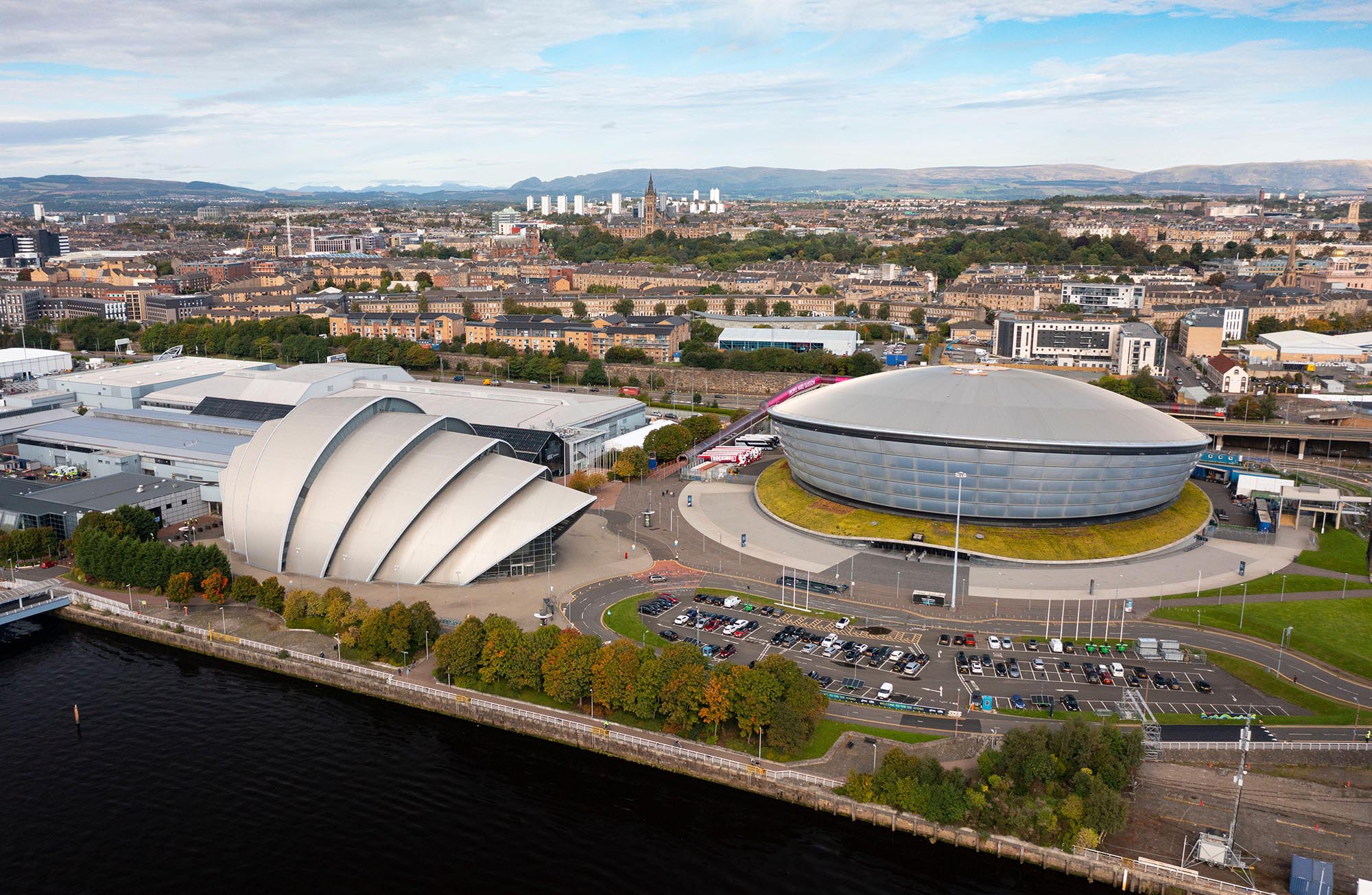COP26 Faces A Chaotic Start – But Number 10 Seems Confident They Can Win On Ambition Alone
The COP26 summit starts in Glasgow this week with hosts the UK hoping to secure net zero agreements from across the globe (Alamy)
6 min read
COP26, a landmark climate change summit that is due to begin in Glasgow tomorrow, could prove to be a legacy-defining moment for Prime Minister Boris Johnson.
The United Nations-led event has seen global leaders congregate to strike deals on tackling climate change since 1995, and this decade’s conferences are being viewed as especially crucial in changing the course of a looming environmental disaster.
But while there is increasing concern that it could be an uphill struggle to ensure the necessary agreements are reached by the end of the conference, the UK will argue it is not through a lack of ambition.
Any unease is not helped by an ominous backdrop of rail strikes threatening to cause travel chaos (now called off), a refuse worker dispute that has led to lurid tales of overflowing rubbish and rats biting bin men, and Britain’s 95-year-old Queen pulling out of the event at the last minute due to ill-health. Prince Charles and the Duke and Duchess of Cambridge will take her place as a key diplomatic force in proceedings.
The government may brush off such set-backs as background noise, but they’ll have a more difficult time addressing the fact that leaders from high-polluting countries China, Russia, Iran and Brazil will not be sending their leaders to the event.
At COP’s last major summit in France in 2015, nations agreed to keep the rise in mean global temperature to below 2°C, and preferably limit the increase to 1.5°C – a target known as The Paris Agreement.
The figure is based on multiple studies that have shown an increase of 2°C would be devastating to humanity, with severe heat causing droughts and famines, melting the polar ice caps, and flooding coastal areas.
While limiting temperature rise to 1.5 would still have serious consequences, it is not believed it would lead to such extreme catastrophes.
But although Paris set an important precedent, it did not lead to pledges about how this could be achieved. Johnson wants to use Glasgow to secure binding commitments from nations on net zero, to “keep 1.5 alive”.

COP26 president Alok Sharma has already got the ball rolling, spending the last year negotiating with governments around the world with a certain amount of success.
Nick Mabey, chief executive of European climate change think tank E3G, felt Johnson had no choice but to drive pressure on plans to achieve the 1.5C target.
“There was no way they could hold a COP without asking countries to keep 1.5 alive and go for the highest ambition possible, because if they didn't, people wouldn't accept it,” Mabey told PoliticHome.
“They knew there was a risk that the big polluters wouldn't accept it, but I don't think it was credible not to. "
While Mabey believed the UK was sceptical that big polluters such as China would accept the target, he said it would not have been credible for Johnson not to at least push for it.
“There were more risks in appearing not to try and ask people to be more ambitious than they are,” he continued.
“At least if you ask people to be ambitious around what the science says, and if they say they're not going to do it, it's clearly on them.”

Before Paris no country had a target for achieving net zero by 2050, and now 85% of the world economy has a net zero target of either 2050 or 2060, partly thanks to the UK’s lobbying and diplomatic push.
For its own part, the UK’s former Prime Minister Theresa May went as far as enshrining a 2050 net zero target in law. Earlier this month, a detailed strategy on how it will be achieved was published.
At a Downing Street briefing on COP26 this week, the Prime Minister’s spokesperson would not single out specific nations that needed to go much further in their commitment, but pointedly said that “too many countries are doing too little”.
They said that success at Glasgow would mean “ensuring that we have commitments sufficient to keep 1.5 alive, that we're making enough progress to bring the predicted climate change rise down, and to reduce global emissions to net zero by the middle of the century”.
Commitments to halving emissions by the end of the decade would be key to achieving this, and the next few days would provide “a critical moment for world leaders to demonstrate they can show the climate ambition needed,” the spokesperson added.
Number 10 recognised that was an “an extremely ambitious goal” and admitted that achieving it “is in no way guaranteed”.

The fact China – the world’s most polluting nation by a long way – has only committed to a 2060 target poses the biggest threat to success at COP26.
Last month China’s President Xi declared they intend to keep burning coal a while longer, and with it see carbon emissions rise for the rest of this decade before falling to zero in the 30 years after.
“China is basically saying we're not going to raise our 2030 target, and that means you can't get to 1.5 because it's the world's largest polluter,” one climate analyst told PoliticsHome.
“That's basically saying for small islands - existentially you do not exist.”
Much of the work to get agreements secured has already taken place, but there is belief among Sharma’s team that more deals are in play over the conference fortnight.
Professor Mark Maslin, who sits on the international Climate Crisis Advisory Group, noted that securing further global investment to move away from fossil fuels will be crucial.
He said COP26 must “secure the funding arrangements agreed in 2009, and ratified in 2010, for a Green Climate Fund of at least $100 billion per annum from the world’s developed economies to support the least developed countries transition to a low carbon economy”.
Beyond China, the world is looking at countries like India, Indonesia, South Africa and Turkey, but analysts say they need finance in order to build clean economies.

"They know that getting out of coal into renewables is good for them, but it is a matter of financing, not cost,” one analyst told PoliticsHome.
Privately, Number 10 thinks the “cash” part of its “coal, cash, cars and trees” mantra for COP26 is on track, which when coupled with other achievements so far, means the UK will have a compelling story to tell.
As one source puts it, the widespread adoption of net zero policies, global car manufacturers phasing out internal combustion engines, and even asset managers committing to decarbonise more of private finance means there is a lot to be proud of already.
But without China, the dream – and with it the government’s Glasgow’s legacy – to “keep 1.5 alive” may already be out of reach.
“In the end there'll be lots to say, which is brilliant, but there will still be a gap to what's needed,” one climate analyst said.
“They're just going to have to live with that.”
